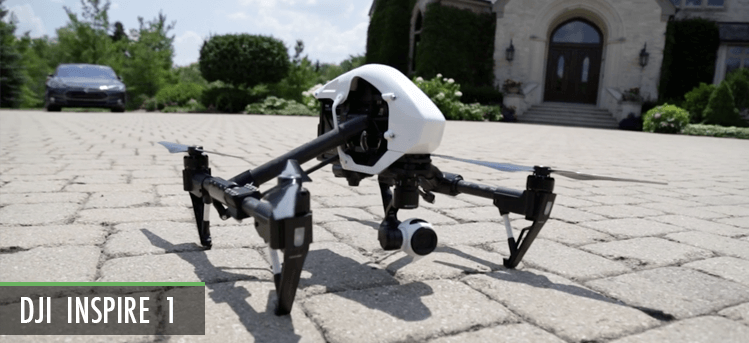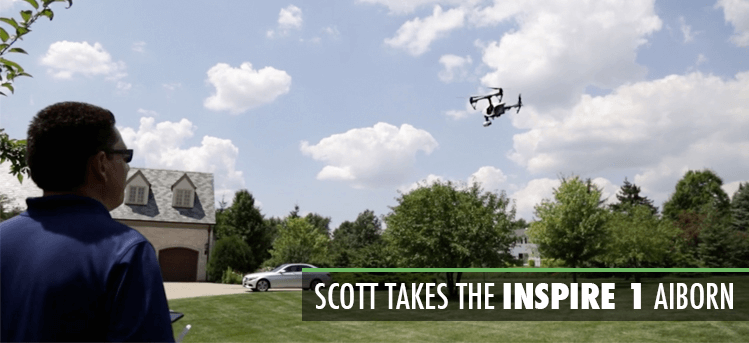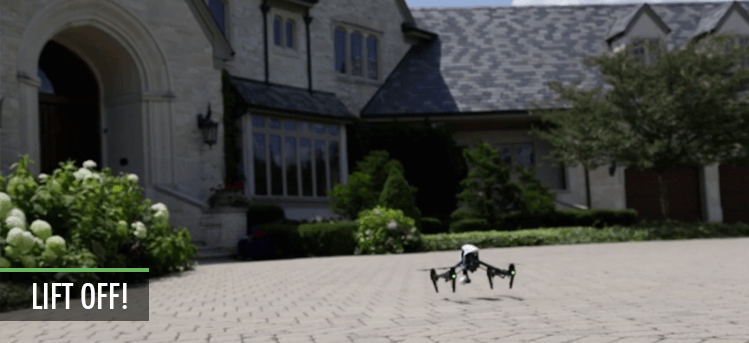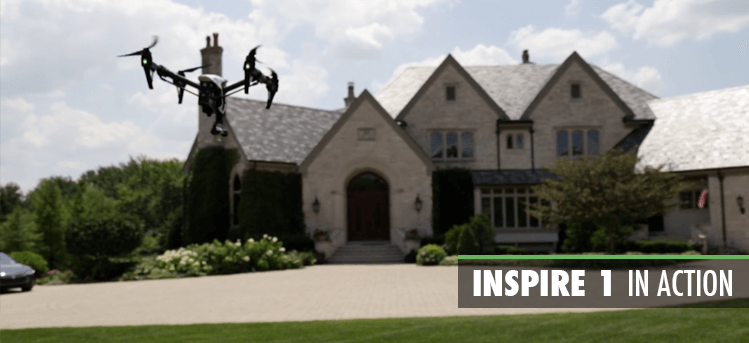Selling a Home with a Drone
With all of the ground-breaking technology you’ve seen in recent years, there’s one in particular that has taken it to the next level: sky level.
And that new technology is drones.
But what is a drone, you ask?
A drone is an unmanned aerial vehicle (UAVS). They are currently used for purposes of law enforcement, national security and scientific purposes. However, there is growing popularity in using a drone for real estate.
Have you thought about using a drone for your real estate business?
If so, there are some key things you’ll want to know beforehand, because using a drone is not as simple as going out and buying one, plus you need to know how the proper set up for a real estate video tour.
How are drones used?

As of now, the U.S. Federal Aviation Administration (FAA) prohibits the use of UAVS for any commercial purpose unless the FAA has granted a user the certificate of airworthiness.
Know these acronyms:
Ready to Fly (RTF)
This means that with the drone you buy, it has everything you need to begin your flight. You simply open the packaging charge and install the batteries, and your drone is ready for action.
Bind and Fly (BNF)
In order for your drone to fly, it will require a BNF transmitter with enough channels. If you already have a transmitter then you’re good to go. If not, you can add it to your purchase list.
Almost Ready to Fly (ARF)
If your drone comes in this aircraft package, then it usually includes everything you would need to fly and only requires a simple assembly. As long as you can put it together, you’ll be flying over properties in no time.
Why should I buy a drone?

Yes, it’s an expensive purchase, but if you’re looking to elevate your marketing strategy with the latest technology, then a drone can do the job.
Everyone is used to the standard property photos. You have the interior and exterior, but how about a new perspective?
With a drone, you can capture unique shots of your home for sale, unlike any other property photos on the market.
If you wanted to catch a buyer’s eye, then this will certainly do the trick.
Where can I get a drone?

Drones are easy to find, just be ready to shell out some serious cash.
A drone can cost anywhere from hundreds to thousands of dollars. If you want a quality drone that captures good footage of your property, then you should be ready to hand over a few grand.
Do a simple Google search to get a good price range and an idea of where to buy. And before you buy, there are a few important things you should know.
Not all drones are easy to operate
Operating a drone isn’t like your childhood remote-controlled car.
Because your drone flies, it’s going to be a more difficult to control. Each drone is different in regards to setup. Some drones are created to fly around quickly and with ease, while others were made with a focus on stability.
A drone is a big investment
As mentioned before, a drone typically isn’t something you buy on a whim.
You need to take some thought and consideration to buying one to ensure it will benefit your business.
Should you decide that you want to buy a drone, you’ll first want to do your research. The more research you do, the more you’ll know.
And the less likely you’ll be to regret your decision after you buy. You definitely don’t want to feel like you’ve wasted your money.
For example, you wouldn’t want to buy a $400 drone only to find it doesn’t work and your real estate.
Consider the following with your investment:
Choose a good controller
If you want to operate your drone with ease, you should definitely invest in a high quality controller for the job.
Buy a good charger
A quality drone will be able to operate for hours on end, and won’t need to be charged as frequently. As a real estate broker, you’ll want the life of your drone to last. A good way to extend the life of your drone is by investing in a quality charger.
A battery charger will be expensive, but will also be reliable and last for years. The more expensive chargers will be able to charge essentially any type of battery. There are even some adaptors available in which you can charge more than one battery at a time.
Just like with the drone itself, you’ll want to spend time researching the key pieces that come with it. Yes, it will dent your bank account, but if you’re committed to buying a drone, you’ll need to invest the time and money to ensure it’s high-quality.
Joining a community is a good idea!

If you’re a first-time drone owner, it’d be a great idea to join a community with other users. There are many online communities you can join with forums where you can learn more about them.
Here a few of them:
Also, you can contact Scott Gerami and Fabio Brancati from Naper Homes to find out more about drones and real estate.
Through joining an online community, you can share ideas and find the answers to your questions to be a pro on the real estate market with your new drone.
Search online for forums and find a few to participate. It’s always good to have some background knowledge before diving right in.
What are the rules?
If you’ve heard anything about drones, you probably know that there are some strict guidelines involving use.
Due to privacy rules, you can’t just fly a drone over any property you please, and a permit is often required. The FAA is cautious about allowing drones to fly around, as they could crash, interfere with airspace, or create other problems.
In attempt to avoid putting you to sleep with the rules and regulations, here are some key things you’ll need to know.
- News media require FAA authorization for news gathering with a drone.
- The FAA has issued waivers for some drone operators to legally operate. There are more than 200 companies in real estate that have waivers and can legally operate.
Either way, there are lots of things to know before you fly.
As long as you prepare financially and understand the rules and regulations, you can buy a drone to make your real estate sales soar.
It’s a great investment.
[emailcta]
You will need the following in order to begin using a drone legally in a commercial practice.
1. a Section 333 grant of exemption,
2. a Certificate of Waiver or Authorization (COA),
3. an aircraft registered with the FAA, and
4. a pilot with an FAA airman certificate